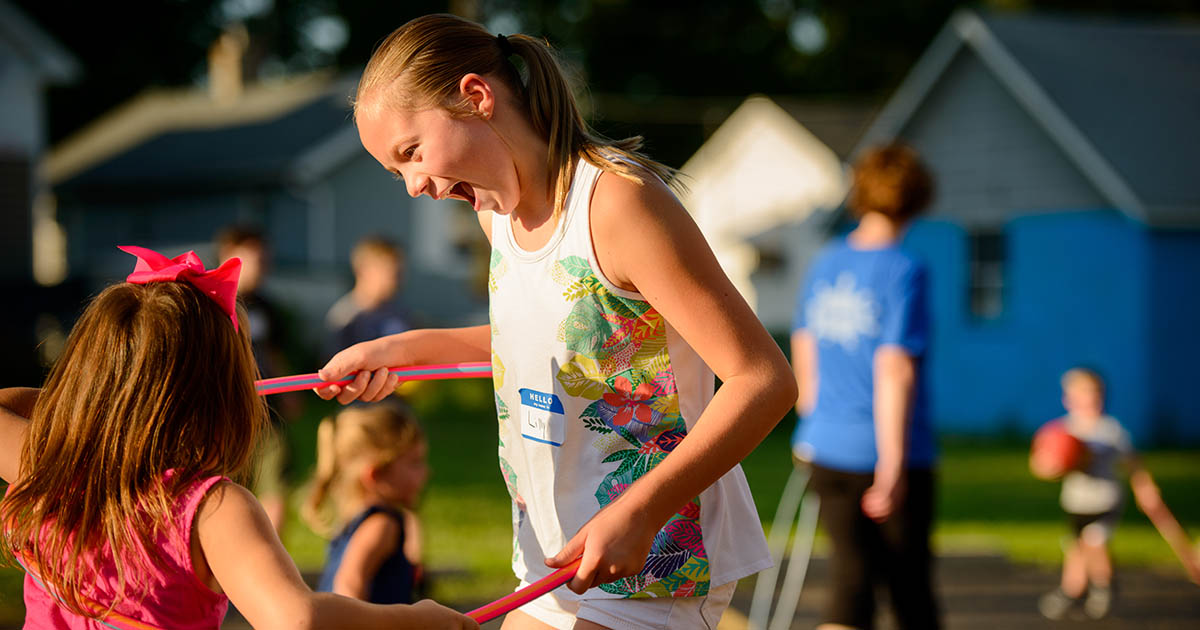Boredom is a lot like stress. Both are things kids need to grow. Studies have demonstrated that children learn much-needed resilience by experiencing stress. “Good” stress can come through a wide variety of events: a music recital, an illness or injury, a new sibling, facing down a fear, losing a pet, a heavy load of chores, or a tragedy. What makes stress manageable is not the total amount, but whether or not the child has the coping strategies and family support he needs. Furthermore, the more often a child takes on new challenges, the less stressful he finds them.
Like healthy stress, healthy boredom is an important part of life. Human beings cannot truly think, wonder, create or pray without time free from distraction and activity. There is a reason our Lord says, “Be still, and know that I am God” (Psalm 46:10). Unfortunately, as a culture, we are terrified of the quiet stillness we call boredom.
One study found that three-fourths of men and a quarter of women preferred to give themselves painful electric shocks rather than be left alone in an empty room for 15 minutes. We have become human beings who find boredom unbearable, yet also become bored at the drop of a hat. Our inability to handle time with our own thoughts is at least partly to blame for the way our cultural discourse has shifted so heavily toward soundbites, rants and other forms of manipulation. If we are honest, we will admit that it also affects our struggle as Christians to spend time reading God’s Word and praying.
As Lutheran parents, we have a duty to resist the culture when it harms our children. We do not have to raise humans who cannot handle contemplation. Rather than over-structure our children’s summer with programs, worksheets, activities and screen time this year, we can give them the gift of the right kind of boredom and provide them with a chance to think.
Admittedly, this is not always easy. Who wants to deal with whining offspring who cannot seem to find anything to do except pick on each other? Fortunately, in the same way that kids can learn through practice to find hard things less stressful, they can also grow in their ability to enjoy unstructured time.
Four ways to help children embrace “boredom”
1: Give them ideas worth thinking about.
This may sound abstract, but it is actually a very practical question: How many big, deep, eternally significant ideas have you shared with your children? Children deserve ideas. We wrong them when we treat them as frivolous beings who can only handle cutesy theology or stories that pander to short attention spans and gross humor.
Read your children Scripture and the Small Catechism. Go slowly, verse by verse, and ask them to tell back what they are hearing. If your children are unfamiliar with the language of the actual Bible, start with a text that tells a familiar story, such as the Gospel of Matthew. Welcome their theological questions. If you cannot provide them with answers, help them ask the pastor after church. Help your children memorize Bible passages. Nothing encourages contemplation of Scripture like storing away verses that can pop into one’s head at unexpected times.
Read your children real, high-quality literature. Find an anthology of classic poetry (we enjoy this one). Pick up great novels that introduce some of the questions humans have grappled with for centuries. Let your kids spend time with Achilles and Hector, St. George of the Red Cross, Robin Hood, Queen Lucy of Narnia, The Bastables of Lewisham Road or Laura Ingalls. Stories like this will shape your children’s play and give them wonderful ideas to act out in the backyard afterward. There is nothing boring about slaying dragons.
Children who have ideas to think about are less likely to grow into adults who cannot bear to sit in an empty room for 15 minutes, or, indeed, into teenagers who reach for their phones every time the conversation pauses.
2: Help them build the habit of observation.
In the book Last Child in the Woods, Richard Louv quotes a fourth grader who said he preferred to play indoors “because that’s where all the electrical outlets are.” Children who have never learned to pay attention to nature will see the outdoors as grassy places without electrical outlets. Children trained to observe will recognize their yard as a habitat for multiple varieties of ants and beetles, as a place to dig up worms, as a hunting ground for robins, as a place to look up at the clouds and try to predict the weather.
We can model the habit of paying attention and thinking about what we see. When we take our children on nature walks, we can stop and examine footprints, trees or seed pods. We can sit beside our kids and watch ants. We can wonder aloud about the ants’ lives and activities, and later check out a book from the library that will give our children enough information to help them to ask even better questions. We do not want to be pedantic here — our children will not be interested in everything we find — but we can model living as human beings who routinely look in wonder at the world God made (Psalm 8).
Most things in life are interesting if we are willing to be interested. Children who learn to observe and wonder are much less likely to be enslaved by the need for constant, external entertainment. They will have no need to fear quiet.
3. Give them opportunities to create.
Human beings have an innate drive to make things. Unfortunately, as a culture we have lost many of the handicraft skills that were once passed down from generation to generation. This summer, pick a skill like crocheting, sewing, woodworking, cooking, drawing or painting and teach it to your child (YouTube can come in handy here). Give him a pile of materials and leave him alone for the rest of the month. Thrift stores can be excellent sources for affordable, random craft supplies.
Alternatively, give your child a box of paint, yarn, paper, fabric, glue and empty yogurt containers and let her do as she wills. She will be learning about the properties of her materials, the physics of putting things together and the habit of self-entertainment. It helps if you can give her an idea or two to start off with — maybe make construction paper armor together or suggest she build a fairy house from shoeboxes.
Knowing how to make and create frees your child from the consumeristic conveyer belt of modern commerce. They need not buy whatever the manufacturer tells them to want. They can make something instead. Give your kids a chance to be free.
4. Support old-fashioned play.
The life of the modern child may be “soft” — few kids today are expected to help run a farm or even to walk to school — but modern kids also have far less time to play than children in past decades. Kids need play. It gives them a chance to process their own thoughts and explore the world. It is one of the ways they are wired to learn.
The paradoxical thing about play, however, is that while it comes naturally to children, it also must be learned. Children learn the skill of open-ended play from each other, from adults and through practice. You can model play. Build interesting structures with blocks, create a story about hiding in the bushes from enemy soldiers, explain the rules of backyard ball games or play I spy. Make sure the kids have plenty of plot ideas for imaginative games by reading them good books. Provide a range of open-ended toys like balls, Legos, dolls and old sheets. Let them use sticks, mud and containers of water. Let them climb trees and dig holes. Consider boxing up their other toys and putting them in the attic for the summer.
Provide these things for your children, then send them outside and put your feet up. If the kids come back in to complain, give them chores. Nothing makes play so delightful as having to earn it by washing dishes and folding laundry first.
Stress and boredom are uncomfortable. So is growth. Growth is good. This summer, give your children the gift of unstructured time and allow them to grow in their ability to think, observe, create and play. Let them learn to be people who know how to “be still and know that [the Lord is] God.”






Interesting recommendations noted. It reminds me how my father handled summer boredom in our house, as I grew up. We lived not far from the water, being surrounded by the Long Island Sound on the north shore, and the Atlantic Ocean beaches south of us. A few clean lakes were in between. So summers included days on the beach, playing baseball with friends, movies in the evenings, and my father set apart times of scholarship. My sisters and I were gathered together frequently for an hour of math drills, memorizing the times table, doing fractions, reading something or other. Church was a weekly requirement in our Catholic home. I think the most important thing for parents to do is to have one on one discussions with their children about Biblical faith, Jesus, and the moral absolutes..,right and wrong. Where this is neglected, children cannot grow spiritually, and the opportunity to share and instill Christian values may be lost forever. Soli Deo Gloria.
Wonderful ideas for developing the whole child (summer time and anytime!)